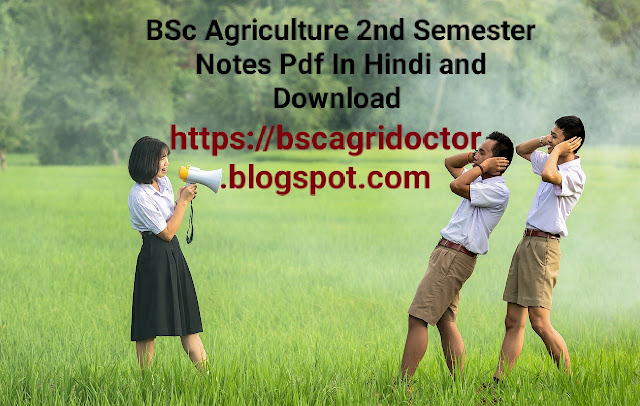Organic Farming In India
Organic farming-introduction, Advantage and Disadvantage, Types, Principles, Importance,FAQs About Organic Farming.
Introduction Of Organic Farming
So you want to go organic? Good for you! There are many benefits to organic farming, from environmental to social to health-related. But before you take the plunge, it's important to understand what organic farming is and the different types there are.
In this article, we'll explore the different types of organic farming and their respective benefits.
What Is Organic Farming?
Organic farming is a type of agriculture that relies on naturally occurring materials to nourish and protect plants.
This can include things like cow dung, green manure, and neem cake.
Organic farming differs from traditional agriculture in a few key ways.
Firstly, organic farming does not rely on artificially made chemicals to grow crops. This includes fertilizers, pesticides, herbicides, and genetically modified seeds.
Second, organic farming takes a more holistic approach to land management.Fertilizers and pesticides may be harmful to the environment, so organic farmers often use compost and other natural methods to keep the soil healthy.
Thirdly, organic produce is grown without the use of synthetic chemicals. This means that organic food is not only good for you, but it's also good for the environment.
The Advantages and Disadvantages of Organic Farming
Organic farming has its advantages and disadvantage.
Organic Farming Advantage
The most commonly touted advantage of organic farming is that
It uses fewer pesticides than conventional agriculture. Pesticides are not only harmful to the environment, but they can also be harmful to the farmers who use them.
Organic farming also advocates claim advantages in sustainability, openness, self-sufficiency, autonomy, and independence.
These advantages come about because organic farming does not rely on external inputs, such as synthetic fertilizers and pesticides. Instead, organic farming relies on the use of compost, crop rotation, and other natural methods to achieve the desired results.
Organic farming aims to produce food while preserving the medium- and long-term effect of agricultural interventions on the agro-ecosystem. In other words, organic farming seeks to strike a balance between producing food and preserving the environment.
Disadvantage Of Organic Farming
However, it is worth noting that organic farming is not without its disadvantages.
One disadvantage is that it can be more expensive to produce food using organic methods than it is to produce food using conventional methods.
Additionally, it can take longer duration for organically-grown food to reach maturity, which can limit its availability.
Types of Organic Farming
There are several types of organic farming, but all of them have the same goal:
to produce food that is safe, healthy and environmentally friendly.
Biological farming: This type of farming uses natural methods to control pests and diseases, as well as to promote plant growth.
Ecological farming: This approach emphasizes the use of natural resources and environmental balance.
Natural farming: This method relies on the use of natural materials and predator-prey relationships to manage pests and diseases.
Sustainable farming: This type of organic farming is designed to meet the needs of the present without compromising the ability of future generations to meet their own needs.
- Biodynamic farming: This approach combines mixed species crop rotations, composting and other practices to create a unique system of micro-climates and soil fertility.
Permaculture: This type of farming focuses on creating a stable, self-sustaining system of plants and animals. Permaculture farms use minimum tillage, animal rotation and natural cycles of soil fertility.
Aquaponics: This type of organic farming combines aquaculture (raising fish or other aquatic organisms) with hydroponics (growing plants without soil in water) in a symbiotic relationship.
Organic Farming Principles
Organic farming is all about relying on nature. Rather than using synthetic inputs, organic farming seeks to create a self-sustaining system of agriculture.
To do this, organic farmers adhere to certain principles that seek to create an environment conducive to natural growth.
These principles include-
building soil fertility through composting and crop rotation.
promoting biodiversity in the environment.
Use of natural pest control methods such as companion planting and trap crops.
Importance of Organic Farming in India
Organic farming is gaining importance all over the world, especially in India. Organic farming has the potential to increase agricultural productivity, while preserving the environment and reducing pollution.
It can also help improve soil health and fertility, protect water resources and reduce reliance on chemical fertilizers and pesticides.
In addition, it can lead to increased farmers' income and improved livelihood security.
Organic farming has a number of advantages over conventional farming. It uses ecologically based pest controls and biological fertilizers derived largely from animal and plant wastes, conserving energy usage while reducing environmental pollution.
It also increases soil fertility by improving the soil's physical, chemical and biological properties, leading to an enhanced production capacity from existing land resources.
Additionally, organic agriculture is a holistic production management system which promotes and enhances agro-ecosystem health, including biodiversity, biological cycles, soil organic matter accumulation and pest control.
The government of India has taken several initiatives to promote organic farming in the country by providing incentives for local farmers to switch to organic practices such as crop rotation and cover cropping. With increasing awareness about the importance of organic farming among consumers both in India as well as abroad, it is expected that the sector will continue to grow rapidly in the coming years.
FAQs About Organic Farming
Organic farming is not only beneficial for the environment, but it is also beneficial for the consumer. By using organic practices, farmers are able to produce fresh, healthy and nutritious produce that does not have harmful chemicals or pesticides. Furthermore, organic farming is an important part of the global food system, providing jobs to local communities and contributing to economic development. Organic farming can also help to reduce pollution and greenhouse gas emissions, as well as preserve biodiversity.
Organic farming is a growing movement, so it’s not surprising that you have plenty of questions.
Let's address some of the most FAQs related to organic farming.
What does organic farming use instead of chemical fertilizers and pesticides?
Organic farming uses ecologically based pest controls and biological fertilizers derived from animal and plant wastes, composts, and other natural materials.
Is organic agriculture the same as organic farming?
Yes, essentially they are the same thing. Organic agriculture is a holistic production management system that promotes and enhances agro-ecosystem health, including biodiversity, biological cycles and soil biological activity.
What is the goal of organic farming?
The goal is to align itself with nature and natural patterns to achieve the goal of growing food without harming the environment or people’s health while still producing an abundance of healthy foods.
Conclusion
So, that was a look at the different types of organic farming. As you can see, there are a lot of benefits to going organic. It's a more sustainable way to farm, and it's better for the environment.Not to mention, it's good for your health and the health of your crops.
If you're interested in learning more about organic farming, or if you're thinking of starting an organic farm, be sure to check out our website. We have a lot of resources that can help you get started.
Thanks for reading!






Comments
Post a Comment